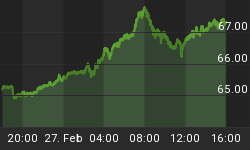The uncertainty for cryptocurrency in Russia is over. The government will control its production and creation entirely by 1 July.
It doesn’t matter that the Russian Central Bank is opposed to any legalization of the crypto market. Russian President Vladimir Putin has ordered that the package of legislation—the Digital Assets Regulation Bill, which emerged last year—must be adopted by 1 July, opposition or no.
But the Russian Finance Ministry is simultaneously working on a law to criminalize the use of cryptocurrency as a substitute for fiat currencies for the purchase of goods and services.
It’s the Ruble or bust—if they get their way.
Or, as Bank of Russia head Elvira Nabiullina put it: “There is the ruble, and everything else is a surrogate.”
"The Central Bank is against the legalization of this type of digital currency (that can be exchanged), since in this case, citizens can start actively investing in cryptocurrencies, not taking into account possible risks," said Anatoly Aksakov, chair of the State Duma Committee for the Financial Market.
The Digital Assets Regulation Bill, however, will define what ‘tokens’ are, establish procedures for initial coin offerings (ICOs) and create a legal regime for crypto mining, and cryptocurrencies themselves. That means licensed exchanges, registered with the government.
But it goes against the Central Bank’s stubborn insistence that crypto currencies shouldn’t be currencies at all.
Putin clearly disagrees. Related: What Sent Bitcoin Below $10k?
He’s got bigger designs for cryptocurrency that included—as of last December—talk of using cryptocurrency for oil trade to avoid payments in U.S. dollars and limit the impact of U.S. sanctions, taking cue from Venezuela and the ‘Petro’ coin, or China’s plans for the ‘Petroyuan’, which aims to skirt the U.S. dollar in oil transactions.
In January, the Russian Association of Cryptocurrency and Blockchain (RACIB) indicated that the government’s idea for a state crypto—the CryptoRuble--would be launched as soon as mid-2019.
As for cryptocurrency elsewhere, nations around the world are also increasing scrutiny of digital currencies. But for now, most are tip-toeing around the issue, uncertain as to how to proceed without causing too much damage.
While China shut down Bitcoin exchanges earlier this year as part of its plan to ban digital currencies to reduce financial risks, the U.S., for one, has been slower to act.
Last week, the SEC allegedly launched a crackdown on crypto exchanges, reportedly issuing "scores of subpoenas", though the regulatory body has not confirmed this. And earlier in February, SEC Chairman Jay Clayton told a Senate hearing that he recommended the SEC “police these markets vigorously”.
On Wednesday, the SEC issued a new statement on “Potentially Unlawful Online Platforms for Trading Digital Assets”, providing a detailed warning for consumers.
Yesterday, regulatory uncertainty and news of another potential exchange hack sent cryptos spiraling downward, with Bitcoin dipping below $10,000, before recovering somewhat on Wednesday morning, but remaining below the 10k mark.
By Fred Dunkley for Safehaven.com
More Top Reads From Safehaven.com:
















